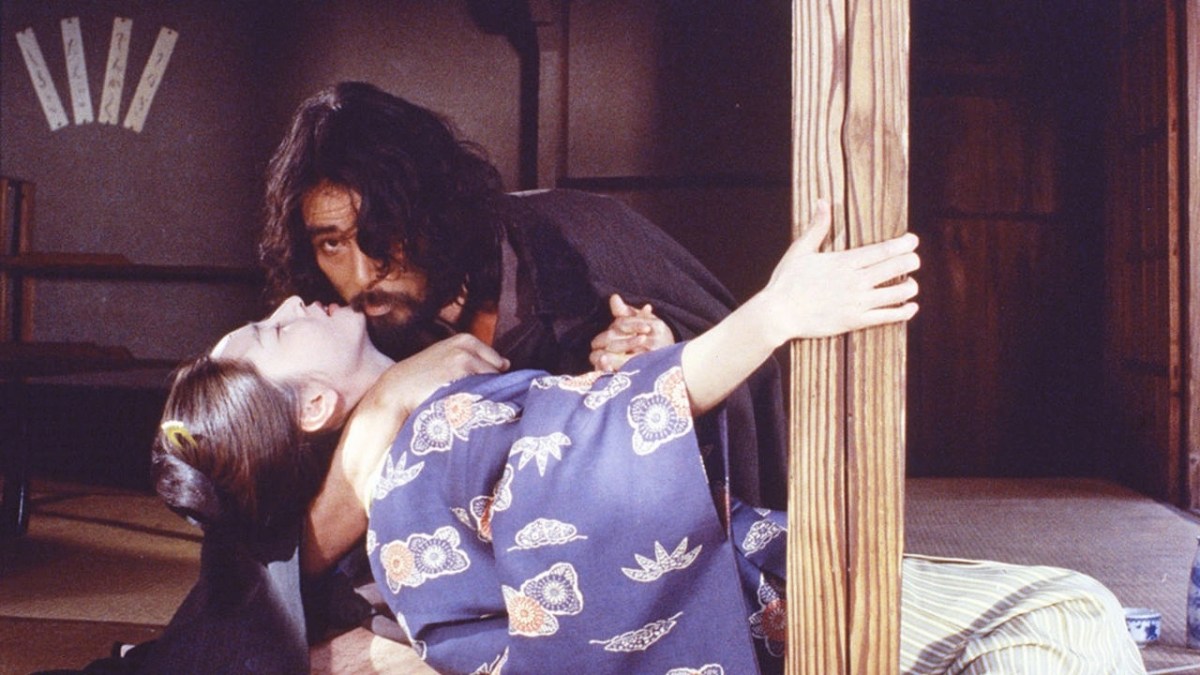A professor and his vagabond colleague become acutely aware of their lust, mortality and bad dreams in this intriguing ghostly tale from Suzuki that is somewhat bogged down by its protracted runtime.

Review #2,699
Dir. Seijun Suzuki
1980 | Japan | Drama, Mystery | 144 min | 1.37:1 | Japanese
NC16 (passed clean) for some nudity
Cast: Toshiya Fujita, Naoko Ohtani, Yoshio Harada
Plot: Aochi, an uptight professor at a military academy, and his erstwhile colleague, Nakasago, now a wild-haired wanderer and possible murderer, encounter love triangles, doppelgängers, and a blurred line between the worlds of the living and the dead.
Awards: Won Honorable Mention & Nom. for Golden Bear (Berlinale)
Distributor: –
Accessibility Index
Subject Matter: Moderate – Supernatural Elements; Fiction vs. Reality; Mortality
Narrative Style: Slightly Complex
Pace: Slightly Slow
Audience Type: General Arthouse
Viewed: Oldham Theatre (as part of AFA’s Seijun Suzuki Retrospective)
Spoilers: No
As the first part of Seijun Suzuki’s arthouse ‘Taisho’ trilogy, Zigeunerweisen (named after a famous track by Spanish classical composer Pablo de Sarasate) begins with a vinyl playing that piece of music.
There are sounds of static in the playback, immediately immersing us in an older, analogue world. This is the early 20th century, not far from when Sarasate passed away in 1908.
Two characters listen intently and one of them remarks that there appears to be an indecipherable voice in the instrumental recording. Was Sarasate saying something—and what was he mumbling about?
This ghostly voice haunts Suzuki’s film and sets the shaky fundamentals of a work that has little indication as to what constitutes reality or nightmare.
This ambiguous interplay may sometimes be subtle, though more often it is amplified by Suzuki’s film language, be it the conspicuous use of light and shadow, mysterious mise-en-scene, or the sudden hits of Japanese ethnic percussion.
“It’s pale pink, like cherry blossom.”
The director would push this style even more radically in the more interesting if convoluted Kagero-za (1981). Still, there is enough in Zigeunerweisen to captivate as the main character, a professor of German, becomes privy to his vagabond colleague’s exploits with women.
When the latter marries a woman who resembles another woman whom he had an earlier fling with, realities start to break down.
The finest scene to me in Zigeunerweisen sees a man chasing after a woman in a house, accompanied by frenzied drumming (it feels like an artistic antecedent to, say, Alejandro G. Inarritu’s Birdman (2014) in its use of drums to create an offbeat cinematic experience).
Unfortunately, Suzuki’s film rarely reaches the height of that great moment; in fact, those more critical of it would lament the protracted final act that produces diminishing returns.
I think it’s a good half-hour too long but still worth seeing as an example of Suzuki’s continuing ambition as a filmmaker who wasn’t afraid to push the boundaries.
Grade: B
Trailer:
Music:












[…] Zigeunerweisen (1980) […]
LikeLike